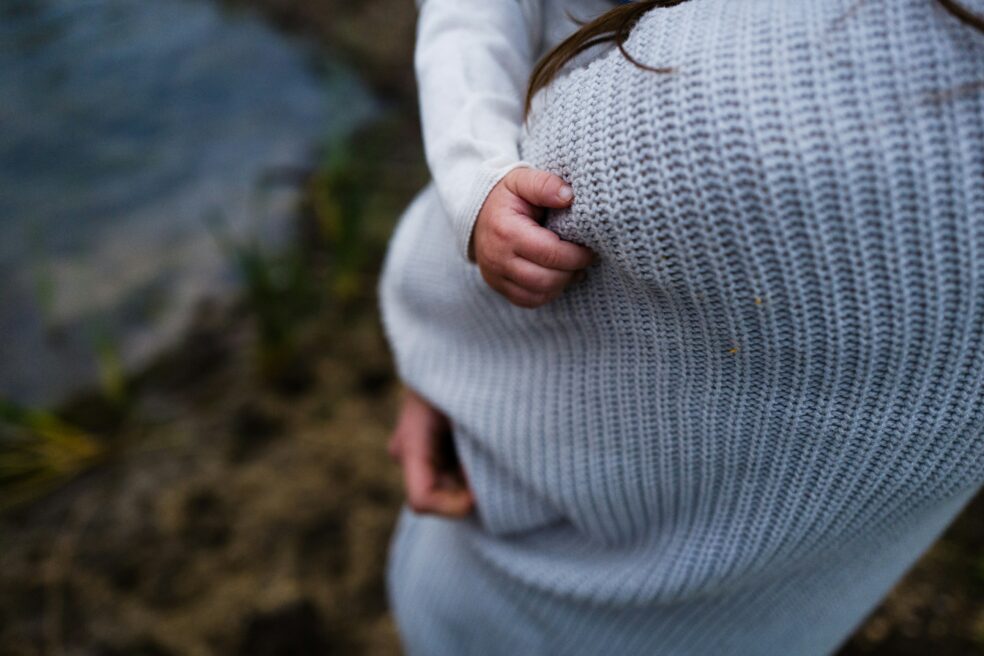Movies and TV shows depict having a baby as a miracle and a blessing. While these are both true, childbirth is different for each person.
Some people experience an effortless pregnancy and delivery, while others have a more difficult time throughout the entire process. The experience is unique to each individual. Even the partners involved have different experiences navigating the journey to becoming a parent.
Before having a baby, there is a general idea of what you hope pregnancy, the birthing process, and post-pregnancy look like. But what if postpartum doesn’t match what you thought it would look like?
Let’s learn more about the signs of postpartum depression and how to cope.
What is Postpartum Depression?
“Baby blues” are a common experience that many mothers face following childbirth. The birth of a new baby can bring on a lot of different emotions, both positive and negative. A new parent’s emotions can range from excitement and happiness to anxiety and fear. Postpartum depression is a more severe form of depression that can set in after a few days following the birth and can last for up to a year after giving birth.
The Cause
There isn’t one specific cause of postpartum depression. There are a lot of factors that can come into play. These are some of the most common causes or risk factors of postpartum depression:
- Bipolar disorder
- Difficulty with breastfeeding
- Financial problems
- Genetics
- Health problems with yourself or your baby
- History of depression or postpartum depression from a previous pregnancy
- Hormonal changes
- Lack of a support system
- Multiple births – twins, triplets, or more
- Physical changes
- Relationship problems
- Sleep deprivation
- Stressful life events
- Struggling with a sense of self or identity
- Unwanted or unplanned pregnancy
The Signs and Symptoms
The signs and symptoms of postpartum depression can look very similar to baby blues, at least at first.
The symptoms of baby blues are:
- Anxiety
- Changes in appetite
- Crying
- Difficulty sleeping
- Irritability
- Lack of concentration
- Mood swings
- Overwhelmed
- Sadness
While postpartum depression can show a lot of the same signs and symptoms as baby blues, the symptoms can be a lot more intense and longer lasting. Baby blues last only a few days and up to a week, while postpartum depression can linger on.
The symptoms of postpartum depression are:
- Anger
- Changes in eating habits
- Crying a lot
- Difficulty forming a bond with your baby
- Down or depressed
- Fear of being a bad parent
- Guilt
- Hopelessness
- Insomnia
- Irritability
- Isolating oneself, especially from loved ones
- Lack of interest in activities that were previously enjoyed
- Loss of energy
- Restlessness
- Severe mood swings
- Shame
- Suicidal ideation
- Thoughts of harming your baby or yourself
- Trouble concentrating, making decisions, and thinking
- Worthlessness
How to Cope
Parenting isn’t easy. Everyone goes through ups and downs when caring for and raising a child. You’re not expected to have all of the answers, and it’s okay to not be happy, positive, or feel like you’re on top of everything all the time. That being said, it’s also not okay to feel down, sad, or overwhelmed all of the time either. It’s important to strive for a balance in life.
If you’re struggling with postpartum depression, it’s essential to take care of yourself so that you have enough energy to care for your baby. Take time to eat a healthy and well-balanced diet, get enough sleep, and move your body. Make sure you’re leaning on your loved ones during this time too.
While you can make certain lifestyle changes to help you through this time, there isn’t a replacement for seeking additional support. A therapist can help you work through those thoughts and feelings to move forward in your life again. We’re here for you when you’re ready. Reach out today to set up a consultation for postpartum counseling or depression therapy.

